Arriving in Ciego de Avila, we found that our entertainment for the evening had been canceled as Cuba was in mourning. In fact, three days of mourning for Venezuelan President Hugo Chavez had been declared. We had a group dinner and returned to our hotel.
The next day it was still during the national period of mourning, but the center of Ciego de Avila did not appear to take notice. There was a book fair and the mood was festive.
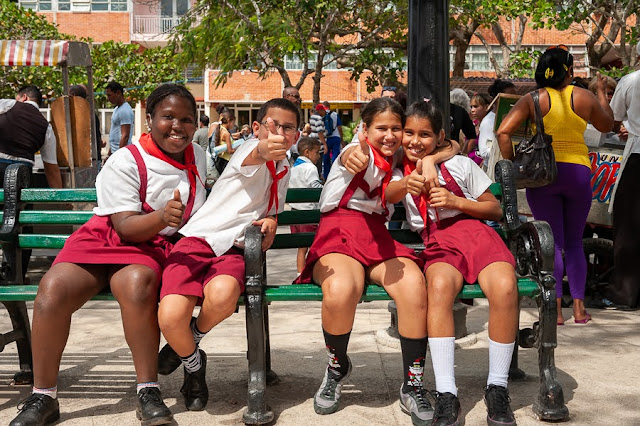 |
| Children in José Martí Square |
We visited the museum to learn about local revolutionary heroes and strolled around the town.
José Martí, 19th century, is a Cuban National Hero. He was a poet, philosopher, and the father of Latin American democracy. After his death, one of his poems became the song, "Guantanamera". The song was adapted by Pete Seeger. There is a José Martí Square in every town.
After lunch we were driven to the small town of Morón to chat with the D'Morón theater group and watch a performance. The performance was laugh-out-loud funny and one of the high points of our time. It was part circus acts, part slapstick, and some audience participation with a salsa lesson at the end. The theater was completely and lovingly renovated by the actors and theater workers.
Dinner was Restaurant Don Papa. We had slow-roasted pork served with rice and beans, plantain chips, calabash, and a salad of shredded cabbage and tomatoes. It was delicious and quite possibly the best meal we had in Cuba. When we arrived some of the D'Morón actors dressed in their "mud" costumes were posing as statues.
With full bellies, we were bussed back to Ciego de Avila for the night.
The next day, Ciego de Avila is still crowded with people attending the book fair. There are lines of people waiting to enter bookstores and banks--we don't know why.
Our guide shows us a "ration shop." This is where Cubans can use the nonconvertible Cuba peso that is worth about 1/24th of 1 USD. Every family has a "ration book" (libreta) and is allowed to buy a certain number of pounds/kilos of staples such as cooking oil, flour, beans, grains each month. If there are children under 8 years old, the family is also entitled to milk, rice, and sugar. These rationed items are purchased at a huge discount, but the ration does not last the entire month.
 |
| Ration Shop |
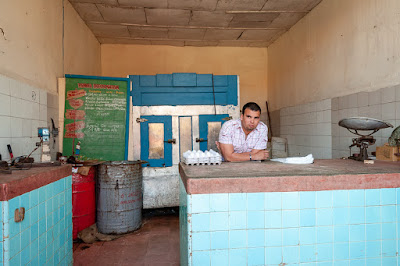 |
| Egg Seller |
Another currency in Cuba is the "CUC" which is the convertible peso. It's value is equal to that of the US dollar. Dollars must be converted to CUCs. The commission to convert US dollars is 13% while the commission scrape off on all other foreign currencies is about 5%. There are "CUC" stores from which imported items (appliances and furnishings) can be purchased at inflated prices.
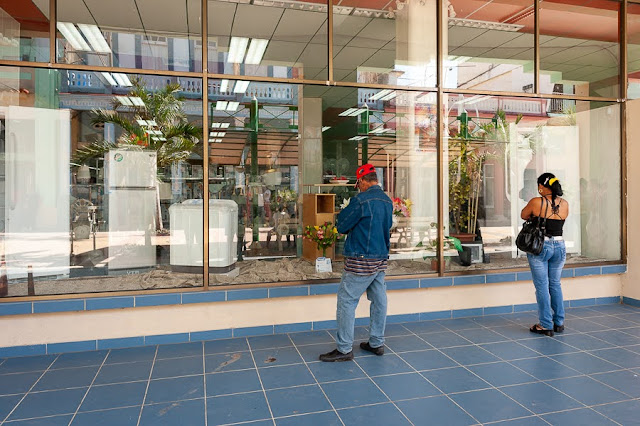 |
| Window shoppers at a CUC store |
About 80% of all Cubans are government workers of some kind. The average government salary is the equivalent of about 19 USD/mo with professionals such as doctors making the equivalent of about 31 UDS/mo. Each year 2-3 billion dollars in returned remittances are sent back to Cuba from family members living abroad. Foreign remittances are Cuba's largest source of income.
During our chats with residents of Ciego de Avila, we hear again about the American embargo preventing shipments of badly needed medicine, the bomber of a Cuban airplane, and the Cuban Five. The US does allow export of milk, rice, and chicken legs to Cuba.
Some of the Cubans we spoke with were worried that with Chavez' death there would be an end to their relationship with Venezuela. They explained that Cuba had a history of bartering doctors and other professions to Venezuela in exchange for receiving oil from Venezuela. Venezuela had discovered that Cuba had been selling those barrels of oil on the open market. Average Cubans were concerned that anyone who replaced Chavez would put an end to the barter relationship.
 |
| A privately owned vehicle (yellow license plate) |
About a year ago the Cuban government laid off about 1 million employees so a little bit of free enterprises is now permitted to absorb those no longer working for the government. The government has specified 181 professions in which it is permissible to be self-employed. Some examples are button coverer, granite (not wood or concrete) floor polisher, dandy, English teacher....
In Ciego de Avila, it was possible to see some of these fledgling self-employment enterprises advertising their products.
Around November 2012, the government allowed Cubans the right to sell real property. Informal (possibly real estate agent is not one of the 181 allowed self-employed positions) real estate agents will find buyers for a 10% fee to the seller. Once there is a seller, a bank appraises the property, but the value is low. The difference between the bank-appraised value and the perceived fair market value is surreptitiously paid to the seller. Prior to this loosening of laws related to real estate sales, selling a house was illegal, and elaborate trades of real property were required.
 |
| "Se Vende Esta Casa" This house is for sale |
Another woman told us a story of how she acquired her house several years ago. At the time, she was 6 months pregnant and renting a house with her soon to be husband. They concocted an elaborate scheme with the owner of the house to acquire ownership for themselves. This is what they did:
She married the landlord. Her name was added to the title of the property. She and the landlord divorced (she was about 8 months pregnant at this point) and she retained the property in her name only. For the property transfer from joint ownership to her sole ownership, she paid the bank about 3,000 pesos (unconvertible, I think) and also paid the landlord a pre-specified amount under the table. Then she and the father of her unborn child married and they now live in this property.
Divorce in Cuba is easy with no waiting period, and separation of property is not an issue for most people. One person said, "When you have nothing, there is nothing to divide. Half of nothing is nothing."
Thursday, March 7, we return by bus (no breakdowns) to Havana and the Melia Cohiba. At Havana's Plaza de la Revolución and José Martí Memorial there is line of people signing the book of condolences for the people of Venezuela.


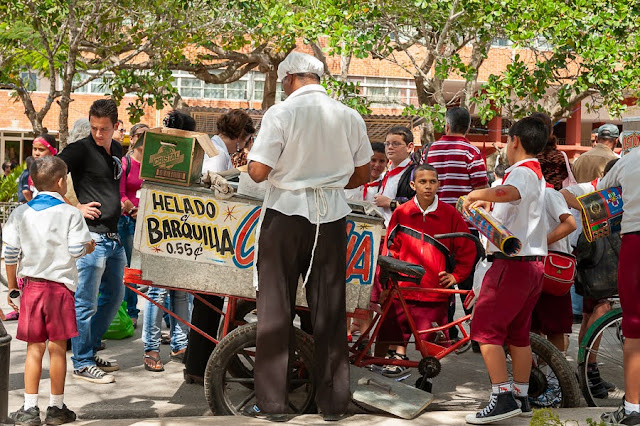






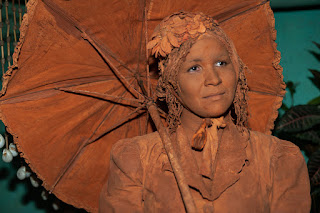






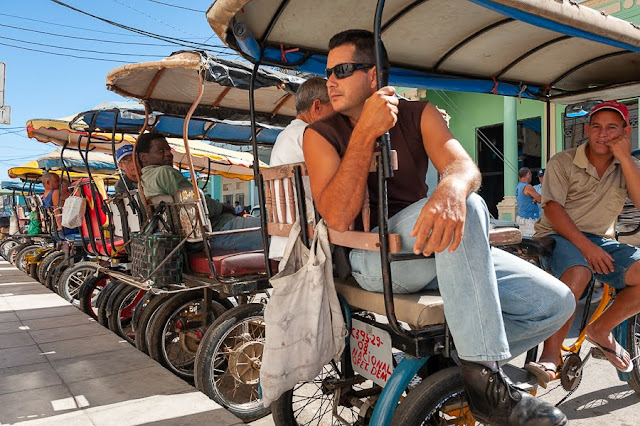
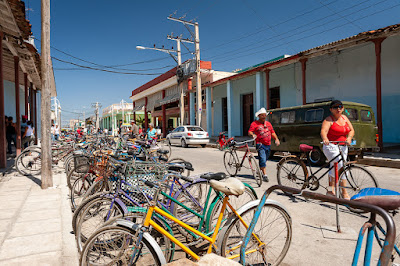





Comments
Post a Comment